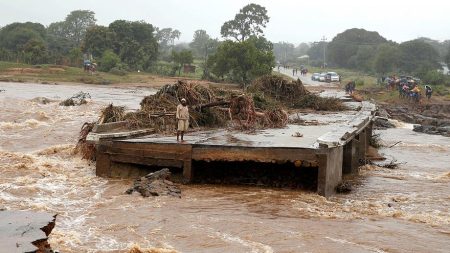 30 October 2013, Lagos – How do we generate energy that would not be harmful to the rest of the society? This is the knotty question confronting humanity at the moment. Advocates of alternative energy have maintained that on a global scale, rising energy consumption is linked to the renewed aggressive extraction of natural resources from Africa to meet increasing demand in North America, Europe and the BRICS countries namely: Brazil, Russia, India, China and South Africa.
30 October 2013, Lagos – How do we generate energy that would not be harmful to the rest of the society? This is the knotty question confronting humanity at the moment. Advocates of alternative energy have maintained that on a global scale, rising energy consumption is linked to the renewed aggressive extraction of natural resources from Africa to meet increasing demand in North America, Europe and the BRICS countries namely: Brazil, Russia, India, China and South Africa.
They contend that inspite of the rising demand for energy, more than 1.6 billion people have no access to electricity and about 2.4 depend solely on fuel wood. It is the effort to find alternatives to this anomaly that the Environmental Rights Action/Friends of the Earth Nigeria (ERA/FoEN) working in concert with over 50 civil societies, community groups and energy experts organised the Africa Alternative Energy Transition forum recently. According to the Executive Director, ERA/FoEN, Dr. Godwin Ojo, the event was conceived to deepen understanding of energy issues.
Ojo said the event that attracted participants from across Africa was organised to coincide with the Global Month of Action on Energy by a coalition of Friends of the Earth, Greenpeace, Actionaid, International Rivers, 350.org, and some other international Non-governmental Organisations (NGOs) to reclaim power by resisting dirty and harmful energy and affirming the need for transition from fossil fuels to renewable sources of energy.
He said in Nigeria, about 70 percent of the population depend solely on fuel wood for energy, a development, which has put the country in the ranking of the countries with the highest deforestation rate. He stated that the country is said to be losing 3.5 percent of her forest annually.
“The rising energy demand is also leading to violent resource conflicts at the site of extraction. The energy expansions to dirty energy frontiers and technologies such as coal, shale gas fracking, or energy from biofuels have deleterious consequences on farmers and fragile ecosystems. “It is also important to note that the newly released Intergovernmental Panel on Climate Change (IPCC) 5th Assessment report emphasises that climate change and the many environmental catastrophe will likely increase due to anthropogenic causes releasing GHGs into the atmosphere that is leading to global warming and extreme weather conditions.
This means that ecological problems will likely be occurring at greater frequency and intensity and with untold devastating impact unless actions are taken to reduce the impact. The energy sector takes the lead in ruining the earth and accounting for 35 percent of human GHG emissions, Ojo stated.
He said while the groups would resist all false solutions to the global energy deficit, they support a move towards renewable energy sources, adding: “There cannot be any option to a quicker energy transition from fossil fuels to a low carbon economy that is 100 percent renewable sources by 2020. The trade in carbon is a false solution because it provides warped incentives for industry to continue to pollute rather than cut emissions at source.”
He stated the groups’ position: “We want to use this medium to demand that governments in Africa wean themselves of the imposed historical “Energy Colonialism Syndrome” where gigantic infrastructure, huge capital and personnel are emblems of development. For the African continent the energy challenge remains a lack of vision to achieve the right energy mix from renewable sources. For example, the Nigerian energy policy is on a wrong footing by cataloguing textbook sources of energy such as nuclear, oil and gas, heavy oil such as tar sands, while failing to prioritise renewable energy sources and setting targets for the future energy transition.
“We reiterate our argument that the World Bank and other financial institutions still play the double game of claiming to promote so-called energy solutions while investing heavily in dirty energy projects that strip the poor from access to energy and with adverse effects on energy access in Africa.”
He condemned the federal government’s attempt to secure from the International Finance Corporation (IFC), a member of the World Bank group, a $12 billion loan for the Trans-Sahara gas pipeline project. He said the project which prioritises gas exploitation and supply mainly for export rather than meet local demand, is expected to secure loans for the construction of a gas pipeline infrastructure that would deliver natural gas sourced from Nigeria through the Sahara desert to Algeria and then Europe. Ojo contended that the World Bank’s backing of this project reinforced the group’s position that most private investors in energy were interested only in profits and not bridging Africa’s energy deficit.
“The World Bank-funded West African Gas Pipeline (WAGP) project is a perfect example of such projects that are touted as solutions to the energy deficit on the continent that have ended up robbing the people of their natural resources, lands, livelihoods and peace. Benefits that the project promoters promised like employment and social amenities have been shown to be fallacy as little or no benefits have accrued from the project,” he added.
Participants at the workshop observed that existing energy policies in Africa reflected in astronomically high tariff continues to discourage adoption of the few available alternative energy sources open to communities, especially rural women who can hardly afford the costs. It was also noted that the Clean Development Mechanism (CDM) is a warped incentive that profits the polluters and gives license for polluting industries to continue to pollute while the countries of the Global South that suffer the impacts are made to carry the burden of climate change.
Part of the demands of the group are that; energy policy and poverty in Africa be addressed by the prioritisation of national and community energy needs over global economic model that promotes export of natural resources and to the detriment of local markets; African governments promote decentralised alternative energy with a focus on renewables. African governments must increase support for energy models that are beneficial and friendly to the community and environment.
These must be affordable and environment- friendly, small scale, non-grid, and less capital-intensive such that energy production, supply and maintenance are left in the hands of local beneficiaries and African governments dedicate 3 percent of their annual budget for alternative energy research and the adoption of sources such as solar, wind, biomass, and windmills, among others that are community-driven and sustainable.
The communiqué emphasised that African governments must introduce zero taxes on alternative energy products to enable access by communities, especially rural women, adding that civil society groups must engage with the media in deepening understanding of alternative energy issues among communities on the continent.
– This Day



